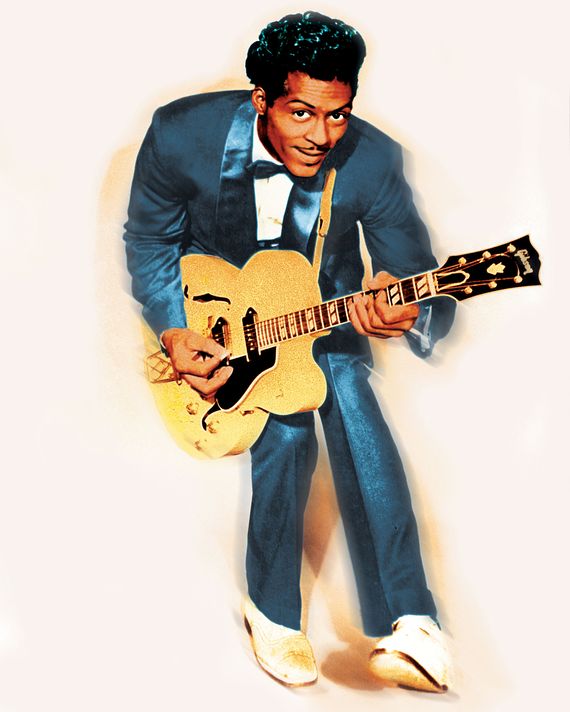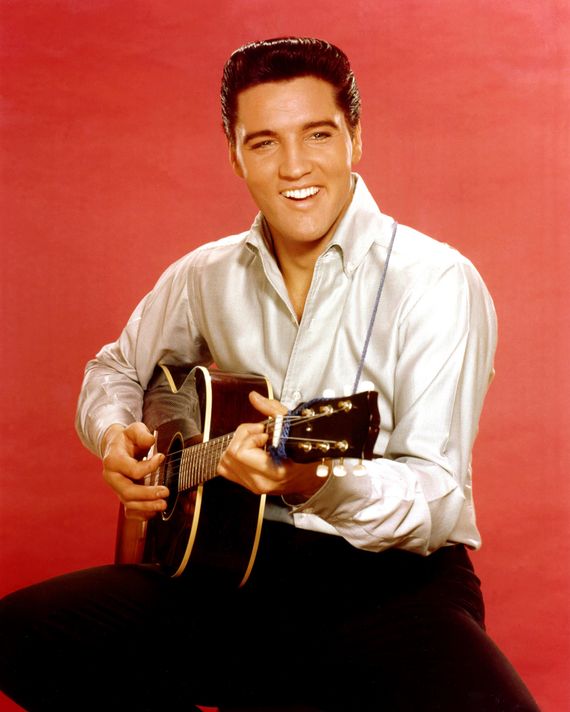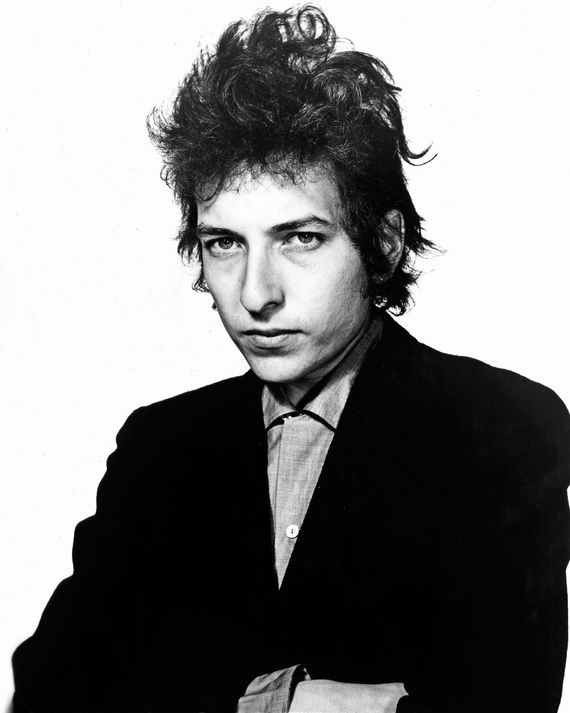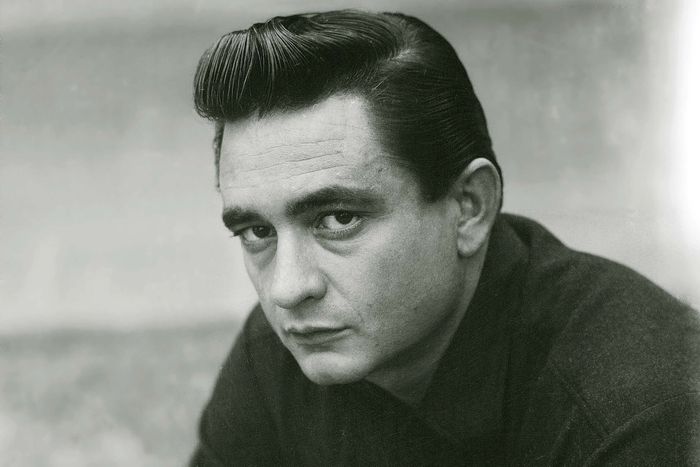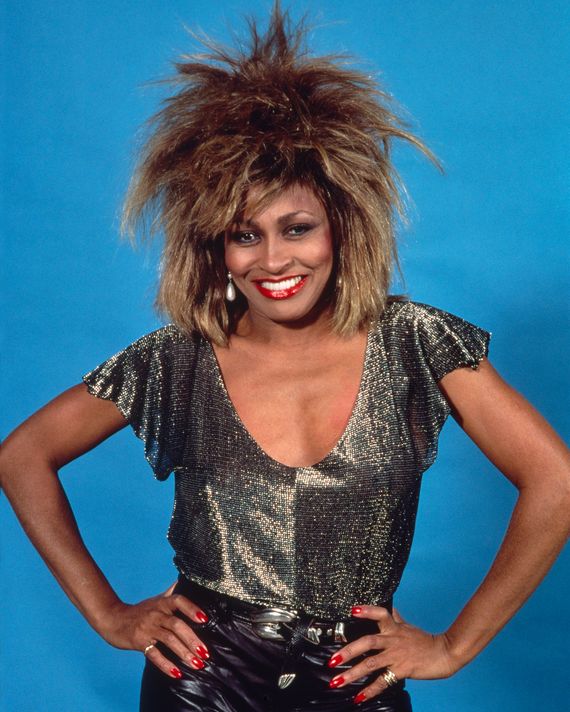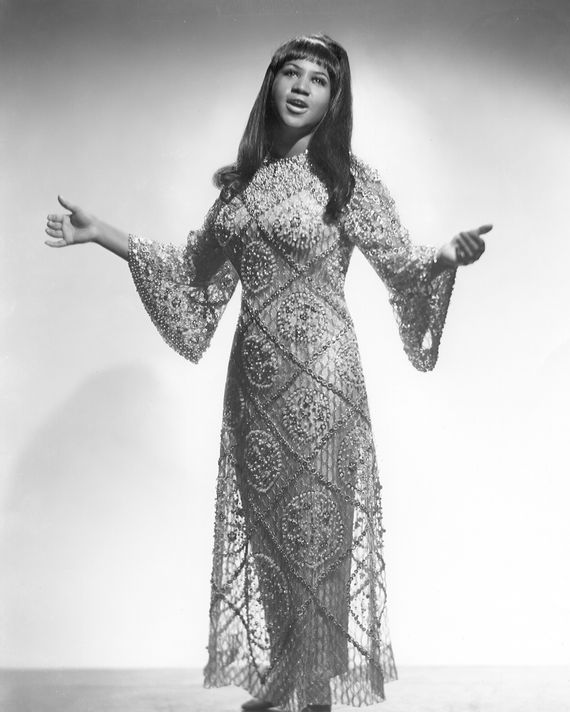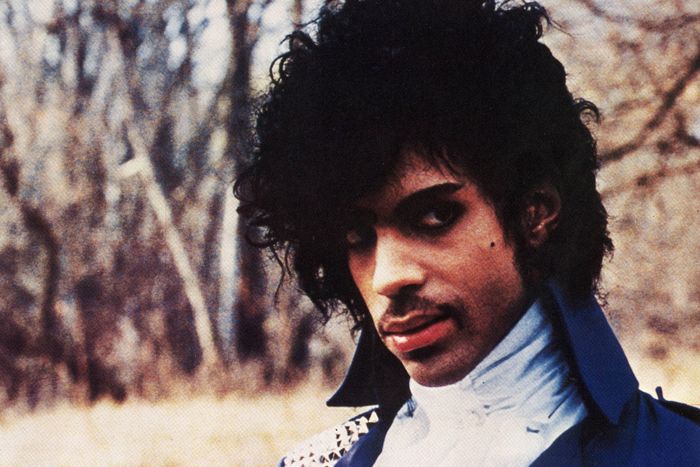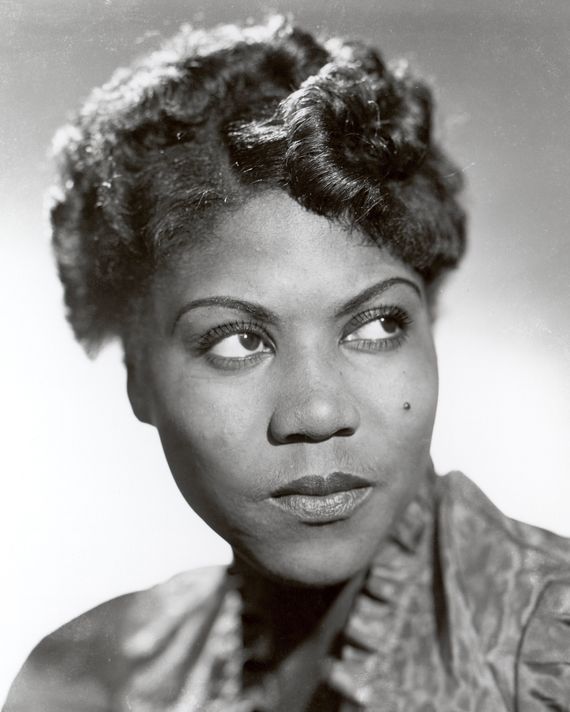
Yola’s turn as Sister Rosetta Tharpe in Baz Luhrmann’s Elvis is a Hollywood rarity, an opportunity for new fans to discover a legacy once lost to time. Tharpe made history in the 1930s into the ’40s, at which point she cranked the distortion up on her electric guitar, imbuing gospel standards with muscular grooves that would come to be called rock and roll when Chuck Berry and Little Richard scored unforgettable hits indebted to her virtuosic fretwork. Tharpe’s innovative marriage of spiritual songs and secular sounds, and her collaborations with jazz and blues icons, impacted generations of players. Here’s a primer to some of the sounds and musicians she birthed.
.
Chuck Berry
A wild man and a showman, the son of a Baptist-church deacon, Chuck Berry brought gospel timing and melodic conventions to the rhythm and blues of the ’50s. Set aside the lyrics to a song like his breakthrough 1955 hit, “Maybellene,” for a second to focus on the speedy delivery and the tastefully acerbic guitar tone, and you’re hearing Tharpe’s influence trickling down into secular radio records.
.
Little Richard
Rock-and-roll pioneer Little Richard was a teenage concession clerk at Georgia’s Macon City Auditorium in 1947 when Tharpe, one of his favorite singers, arrived to play a gig. He serenaded her with her signature spiritual “Two Little Fishes, Five Loaves Of Bread” backstage; later during the show, she invited him up to sing, sending him away with a handful of cash. It was the first time he’d ever been paid to perform.
.
Elvis
“Elvis loved Sister Rosetta Tharpe,” Gordon Stoker of the Jordanaires (the vocal group that worked with Presley and Patsy Cline) noted in Gayle Ward’s Shout Sister Shout!: The Untold Story of Rock-and-Roll Trailblazer Sister Rosetta Tharpe. “Not only did he dig her guitar picking—that’s really what he dug—but he dug her singing, too.” A gifted interpreter (and savvy appropriator), the King was a conduit through which Black rock and gospel sounds breached mainstream white audiences divorced from the source.
.
Odetta
Folk titan Odetta Holmes inspired listeners during the civil-rights movement with rousing performances of tunes like the work song “Take This Hammer.” Odetta had a different approach from Tharpe, as an acoustic player covering folk and blues songs, but Tharpe paved the way for Holmes as a Black woman in the early-20th century playing guitar and headlining tours when that was believed to be men’s business.
.
Bob Dylan
A defender of the American songbook and a rocker whose art touches fearlessly on matters of faith, Bob Dylan was entranced by Sister Rosetta. He called her “a powerful force of nature, a guitar playing, singing evangelist” on his mid-2000s satellite-radio show Theme Time Radio Hour and recalled seeing the gospel singer at shows “always dressed like she was on her way to church with that electric guitar strung across her shoulder.”
.
Johnny Cash
Like a musicologist or an anthropologist, Johnny Cash learned other people’s songs not just to field new ideas or amass a collection of covers but to explore the human condition. We know Sister Rosetta was a massive influence: In his autobiography, Man in Black, he remembered spontaneously, mid-bender, bringing his cab driver to one of her concerts, and weeping openly afterward. When Cash was inducted into the Rock and Roll Hall of Fame in 1992, he name-checked Tharpe as a muse for his songwriting.
.
Eric Clapton
In the spring of 1964, Tharpe played an unusual show at a railway station in Manchester, England, as part of Europe’s American Folk Blues Festival, alongside her friend and frequent touring buddy Muddy Waters. The gig, called Blues and Gospel Train, aired on British television. That same year, blues-rockers there, from Eric Clapton and Jeff Beck of the Yardbirds to Keith Richards and Brian Jones of the Rolling Stones, started emulating that raucous American sound (while rockers across the pond like Jimi Hendrix and Janis Joplin did the same).
.
Mavis Staples
Chicago family band the Staples Singers straddled Christian and secular scenes during the ’60s and ’70s thanks to the expert guitar skills of Pops Staples, the prodigious vocal talents of his youngest daughter Mavis, and the way hits like “I’ll Take You There” dressed their spiritual messaging in groovy body music. Mavis once petitioned her father for guitar lessons: “I want to pick it like you and Sister Rosetta Tharpe.”
.
Tina Turner
Black women molded and perfected rock, and none so prolifically as Tina Turner, an enduring presence on international charts from the ’60s to the ’90s. As was the case with Tharpe, Turner bent genres to her own unique designs and talents, marrying passionate singing to music that understands that gospel and rock and soul and country and folk are all close relatives, their roots shared and their differences minute.
.
Aretha Franklin
In the era when swinging Black soul music congealed into hard funk, artists like Aretha Franklin (and Sly Stone and Stevie Wonder) excelled, having honed their skill in the Black church — a repository of American musical traditions and histories — and carried the Tharpeian showmanship that Black gospel music demands into the business of making hits. A giant of pop culture, Franklin hoisted the torch lit by her unsung predecessors in her virtuosic piano playing and in bringing gospel gumption to songs about heartbreak.
.
Al Green
As Tharpe intended, the spirit of the church and the spirit of the charts commingle in the work of the Reverend Al Green, a singer whose songs beckon listeners to the altar with the same passion they use elsewhere to beckon to the bedroom. Soulful gospel albums like 1980’s The Lord Will Make a Way and 1981’s Higher Plane suggested that the operative difference between the music of the club and the music of the congregation was subject matter.
.
Prince
Raised a Minnesota Seventh-Day Adventist, young Prince Rogers Nelson took to any instrument he could find, writing his first songs on the family piano and learning guitar (and many, many other instruments.). His music sat spirituality and sensuality, and rock and gospel, in the same pew; on 1987’s Sign O’ the Times, the funky party anthem “It’s Gonna Be a Beautiful Night” follows the Christian message song “The Cross.”
.
D’angelo
The singer-songwriter — fittingly christened “R&B Jesus” by critic Robert Christgau as a credit to 2000’s Voodoo blend of louche funk, plush neo-soul, and pastoral fervor — learned his moves in the Virginia Pentecostal church. His father and grandfather were ordained, but the young singer discovered his ministry playing the piano. D’angelo’s organ skills suggest sex and salvation simultaneously; his vocals conjure the image of the Dixie Hummingbirds harmonizing in a smoky jazz club.
.
Brittany Howard
When Sister Rosetta Tharpe was belatedly inducted into the Rock and Roll Hall of Fame in 2018, Alabama Shakes singer and guitarist Brittany Howard led the tribute, effortlessly mimicking the molten emotion of the 1938 Decca Records single “That’s All.” It was a no-brainer: Howard walks the same crossroads as Tharpe as a formidably talented queer Black woman singing about love and faith, unfettered by genre constraints.
.
Yola
From her work with trip-hop pioneers Massive Attack to her stint in the band Phantom Limb to her recent solo albums, Bristol singer and guitarist Yola grasps the joyful, unpredictable elasticity of Black art throughout time and across culture, finding comfort in her place in that continuum. Her records slip between rustic folk and ruddy soul with a deep understanding of the varying histories at play. Embodying Tharpe and all she stood for, in Baz Luhrmann’s Elvis biopic, won’t be the first time Yola’s lived in her shoes.



